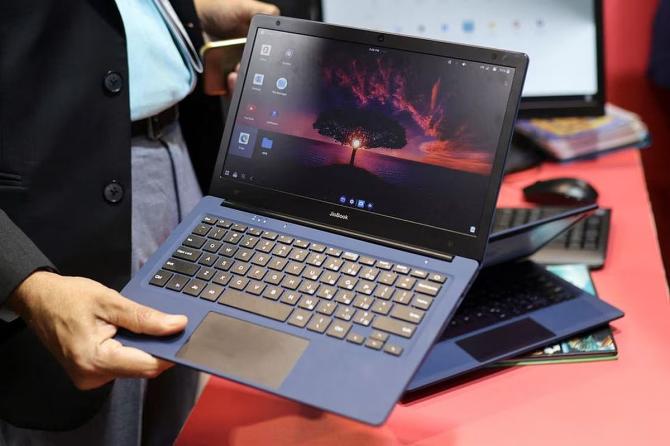India’s import of personal computers, including laptops and tablets, shot up in September by 42 per cent to $715 million, reversing a year-long downward trend after the government announced it would impose import restrictions on such electronic hardware items in August.

The rise in such imports were led by the largest source China (33 per cent) and Singapore (188 per cent), according to data released by the commerce department.
On August 3, the Centre had announced it was planning to bring seven products in the information technology hardware segment, such as personal computers, micro computers, mainframe computers, super computers, computer systems and data processing units under the ‘restricted’ label.
The Centre, however, deferred the implementation till October 30 after the industry raised serious concerns over the decision originally aimed at reducing import dependence on China and ensuring a trusted supply chain.
In a further stepdown, the government last month announced it would not restrict import of such electronic products from any territory, while unveiling a new contactless import authorisation system.
Personal computer imports have been contracting since September last year.
In August, such imports contracted 26 per cent to $525 million.
In total, import of the seven items rose 34.2 per cent to $1 billion in September.
During April-August period of FY24, import of these items had contracted 20.5 per cent to $3.6 billion.
In FY23, India imported $8.8 billion of the seven items brought under the licensing regime, out of which $5.1 billion (58 per cent) worth of products were sourced from China.
Apart from personal computers, the other key item in the list — data processing units — rose 33.5 per cent to $234.5 million in September with shipments from China and the US rising 25 per cent and 129 per cent, respectively.
The US last month sought details on the matter from India at the World Trade Organisation committee on import licensing.
The US asked India to specify the data to be collected and how it would be used.
“Will the information impact the process for granting licenses? Is India considering the use of quantitative restrictions based on the information supplied?” it asked.
The government last month clarified that the import authorisation would remain valid till September 2024.
After the expiry of the authorisation, the government will study the data, continue to interact with the stakeholders, and will figure out how to take it forward, which will provide certainty to the industry.
With the import management system in place, the government will collect clear data about specific products, coming in from different sources and monitoring it in consultation with stakeholders.
This is to ensure a ‘trusted supply chain’ for electronics in the country amid increasing cybersecurity threats for hardware products, it said.
The fresh import licensing norms come at a time when India is seeking to establish itself as a major electronics manufacturer.
It has, in fact, already rolled out a production-linked incentive (PLI) scheme for IT hardware to boost domestic manufacturing of such items.











